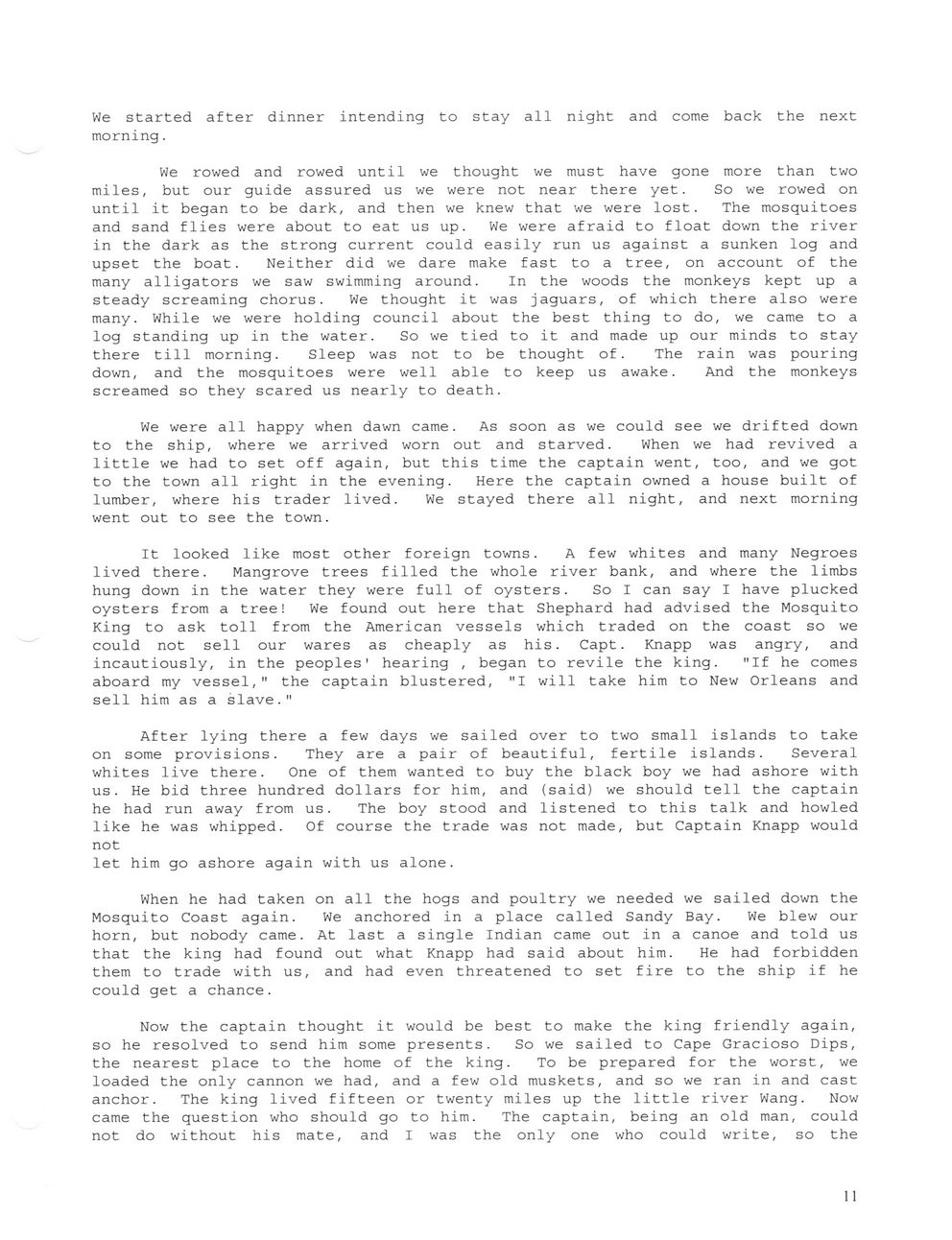This text was obtained via automated optical character recognition.
It has not been edited and may therefore contain several errors.
We started after dinner intending to stay all night and come back the next morning. We rowed and rowed until we thought we must have gone more than two miles, but our guide assured us we were not near there yet. So we rowed on until it began to be dark, and then we knew that we were lost. The mosquitoes and sand flies were about to eat us up. We were afraid to float down the river in the dark as the strong current could easily run us against a sunken log and upset the boat. Neither did we dare make fast to a tree, on account of the many alligators we saw swimming around. In the woods the monkeys kept up a steady screaming chorus. We thought it was jaguars, of which there also were many. While we were holding council about the best thing to do, we came to a log standing up in the water. So we tied to it and made up our minds to stay there till morning. Sleep was not to be thought of. The rain was pouring down, and the mosquitoes were well able to keep us awake. And the monkeys screamed so they scared us nearly to death. We were all happy when dawn came. As soon as we could see we drifted down to the ship, where we arrived worn out and starved. When we had revived a little we had to set off again, but this time the captain went, too, and we got to the town all right in the evening. Here the captain owned a house built of lumber, where his trader lived. We stayed there all night, and next morning went out to see the town. It looked like most other foreign towns. A few whites and many Negroes lived there. Mangrove trees filled the whole river bank, and where the limbs hung down in the water they were full of oysters. So I can say I have plucked oysters from a tree! We found out here that Shephard had advised the Mosquito King to ask toll from the American vessels which traded on the coast so we could not sell our wares as cheaply as his. Capt. Knapp was angry, and incautiously, in the peoples' hearing , began to revile the king. "If he comes aboard my vessel," the captain blustered, "I will take him to New Orleans and sell him as a slave." After lying there a few days we sailed over to two small islands to take on some provisions. They are a pair of beautiful, fertile islands. Several whites live there. One of them wanted to buy the black boy we had ashore with us. He bid three hundred dollars for him, and (said) we should tell the captain he had run away from us. The boy stood and listened to this talk and howled like he was whipped. Of course the trade was not made, but Captain Knapp would not let him go ashore again with us alone. When he had taken on all the hogs and poultry we needed we sailed down the Mosquito Coast again. We anchored in a place called Sandy Bay. We blew our horn, but nobody came. At last a single Indian came out in a canoe and told us that the king had found out what Knapp had said about him. He had forbidden them to trade with us, and had even threatened to set fire to the ship if he could get a chance. Now the captain thought it would be best to make the king friendly again, so he resolved to send him some presents. So we sailed to Cape Gracioso Dips, the nearest place to the home of the king. To be prepared for the worst, we loaded the only cannon we had, and a few old muskets, and so we ran in and cast anchor. The king lived fifteen or twenty miles up the little river Wang. Now came the question who should go to him. The captain, being an old man, could not do without his mate, and I was the only one who could write, so the

Koch, Christian Diary-11